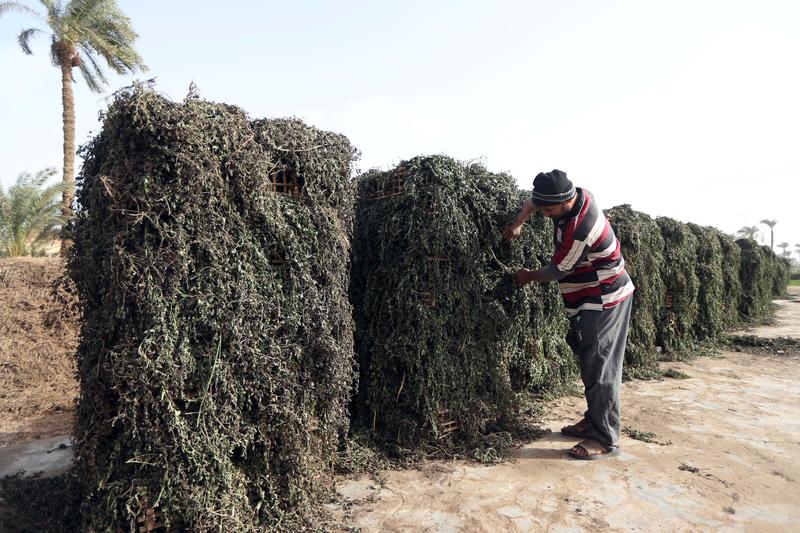
Egypt’s ancient herbs bloom into promising modern industry » Capital News
FAYOUM, Egypt, Dec. 16 (Xinhua) — Helmy Mahmoud, a 72-year-old farmer, tenderly nurtures his medicinal herbs in Fayoum Governorate, Egypt’s burgeoning hub for botanical agriculture.
At Mahmoud’s 50-acre field, the scent of chamomile and mint fills the air, a fragrant testament to the fertile lands of Fayoum, south of the capital Cairo. Fayoum is blossoming into a hub for medicinal herbs, with exports reaching across continents. “We are tightly connected to this ancient tradition, which is now embracing a booming future,” Mahmoud told Xinhua as his hands gently touched the leaves of mint and chamomile.
Mahmoud, who inherited his profession from his ancestors, cultivates caraway, moringa, lemon grass, mint, wormwood, and anise. He emphasized the distinct requirements of growing medicinal and aromatic herbs, noting their need for meticulous care and organic farming practices. The old man highlighted the robust market for medicinal and aromatic herbs, with hundreds of companies actively purchasing, processing, and selling these crops both domestically and internationally.

The financial returns are substantial, leading to a notable increase in herb cultivation in the Fayoum region, he pointed out. Many farmers switch from traditional crops like vegetables and clover to more lucrative aromatic herbs, he added. This transition aligns with Egypt’s national vision for sustainable development.
The country’s updated Sustainable Agricultural Development Strategy 2030, a key pillar of Egypt’s Vision 2030, includes a dedicated national project to expand the cultivation and production of these valuable plants. Currently, 125,000 acres are dedicated to this burgeoning sector. However, Egypt aims to double this figure to 250,000 acres by 2030, according to Egypt’s Agricultural Export Council (AEC), a non-profit organization. This ambitious expansion will be driven by rural development projects, private sector investment, and strategic partnerships with businesses.
Egypt currently exports approximately 85 percent of its medicinal and aromatic plant production, generating nearly 200 million U.S. dollars in revenue each year, according to the AEC statistics. Egyptian herbs and spices now reach over 100 countries. From dried leaves and fresh blossoms to essential oils and fragrant pastes, these products are finding their way into homes, pharmacies, and perfumeries across the globe. “Cumin, anise, caraway, fennel, and mint are among the most sought-after varieties,” said Mohamed Shaaban, manager of a medicinal herb export company based in Fayoum.
“China is a key market for me, particularly for fennel exports,” Shaaban told Xinhua, adding that he is actively working to expand his company’s presence in China by introducing a wider range of Egyptian botanicals.ditionally, Shaaban works on establishing import channels to bring Chinese medicinal herbs, such as cinnamon and ginger, to the Egyptian market.
About The Author